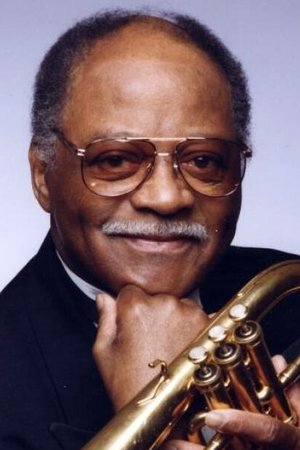Clark Terry (1920-2015)
Birthplace:
St. Louis, Missouri, USA
Born:
December 14, 1920
Died:
February 21, 2015
Clark Virgil Terry Jr. (December 14, 1920 – February 21, 2015) was an American swing and bebop trumpeter, a pioneer of the flugelhorn in jazz, and a composer and educator. He played with Charlie Barnet (1947), Count Basie (1948–51), Duke Ellington (1951–59), Quincy Jones (1960), and Oscar Peterson (1964–96). He was with The Tonight Show Band on The Tonight Show from 1962 to 1972. His career in jazz spanned more than 70 years, during which he became one of the most recorded jazz musicians, appearing on over 900 recordings. Terry also mentored Quincy Jones, Miles Davis, Herbie Hancock, Wynton Marsalis, Pat Metheny, Dianne Reeves, and Terri Lyne Carrington. Terry was born to Clark Virgil Terry Sr. and Mary Terry in St. Louis, Missouri, on December 14, 1920. He attended Vashon High School and began his professional career in the early 1940s, playing in local clubs. He served as a bandsman in the United States Navy during World War II. His first instrument was valve trombone. Blending the St. Louis tone with contemporary styles, Terry's years with Basie and Ellington (who secretly recruited Terry away from Basie) in the late 1940s and 1950s established his prominence. During his period with Ellington, he took part in many of the composer's suites and acquired a reputation for his wide range of styles (from swing to hard bop), technical proficiency, and good humor. Terry influenced musicians including Miles Davis and Quincy Jones, both of whom acknowledged Terry's influence during the early stages of their careers. Terry had informally taught Davis while they were still in St Louis, and Jones during Terry's frequent visits to Seattle with the Count Basie Sextet. After leaving Ellington in 1959, Clark's international recognition soared when he accepted an offer from the National Broadcasting Company (NBC) to become a staff musician. He appeared for ten years on The Tonight Show as a member of the Tonight Show Band until 1972, first led by Skitch Henderson and later by Doc Severinsen, where his unique "mumbling" scat singing led to a hit with "Mumbles".[9] Terry was the first African American to become a regular in a band on a major US television network. He said later: "We had to be models, because I knew we were in a test.... We couldn't have a speck on our trousers. We couldn't have a wrinkle in the clothes. We couldn't have a dirty shirt."[10] Terry continued to play with musicians such as trombonist J. J. Johnson and pianist Oscar Peterson, and led a group with valve-trombonist Bob Brookmeyer that achieved some success in the early 1960s. In February 1965, Brookmeyer and Terry appeared on BBC2's Jazz 625. and in 1967, presented by Norman Granz, he was recorded at Poplar Town Hall, in the BBC series Jazz at the Philharmonic, alongside James Moody, Dizzy Gillespie, Coleman Hawkins, Benny Carter, Teddy Wilson, Bob Cranshaw, Louie Bellson and T-Bone Walker. ... Source: Article "Clark Terry" from Wikipedia in English, licensed under CC-BY-SA 3.0.
